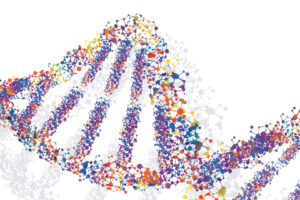It’s said that undergoing treatment for breast cancer is a journey, but it’s important to note that not all journeys are the same. Instead of using the same treatment for everyone, breast cancer specialists at the Statesir Cancer Center at CentraState have access to the latest tools to leverage your genes, lifestyle and even the specific traits of your disease to develop a treatment plan that will work best for you.
For women with early-stage breast cancer in particular, the options for treatment are continually expanding, improving patient outcomes and quality of life.
Positive News for Those with Triple-Negative Breast Cancer
About 20 percent of early-stage breast cancers are an aggressive form called triple-negative, according to medical oncologist Maithili Rao, MD. This means the cancer cells test negative for three key markers:
- Estrogen receptors
- Progesterone receptors
- HER2 protein
Even if detected early, these cancers still have a high risk of recurrence elsewhere in the body. One major advancement in this area is the addition of immunotherapy drugs to chemotherapy regimens before surgery. This has significantly increased the cure rate for these cancers compared to chemotherapy alone. Unlike traditional chemotherapy, which directly destroys all growing cells including cancer cells, immunotherapy stimulates the body’s own immune system to attack cancer cells.
Targeted Therapies for HER2-Positive Breast Cancer
Another 15 to 20 percent of early-stage breast cancers are HER2-positive, meaning that the cancer cells make too much of a protein called HER2. This protein normally helps cells grow, but when there’s too much of it, it can cause cancer cells to grow and spread more quickly.
In the recent past, patients whose cancers were HER2- positive had a higher recurrence rate compared to patients with tumors that were HER2-negative, despite receiving aggressive treatment with chemotherapy, surgery and hormone therapy. These patients now have access to targeted antibody therapies that inhibits the growth of tumors. Coupled with chemotherapy, they have been found to almost double the cure rate in clinical trials.
New Hormone-Blocking Therapies Provide a Stronger Defense
The majority of breast cancers are HER2-negative and estrogen-positive, or hormone-receptor (HR) positive. Luckily, they grow slowly, and the prognosis is very good. Genetic testing often reveals that chemotherapy will be ineffective for these patients, so for decades, the only therapy was estrogen blockers to slow tumor growth. However, a new class of drugs—CDK4/6 inhibitors—offers greater results. These targeted drugs, help slow or stop the growth of certain breast cancer cells by interfering with the way those cells divide.
“In some high-risk, early stage, HR-positive, HER2-negative breast cancers, the addition of CDK4/6 inhibitors to estrogen blockers after surgery and radiation reduces the recurrence of cancer by an additional 7 to 10 percent,” Dr. Rao explains.
Less is (Sometimes) More When it Comes to Breast Cancer Surgery and Radiation
For many years, many women with breast cancer opted to have radical mastectomies. However, removing the lymph nodes can cause long-term complications such as severe arm swelling, implant issues, scar tissue and discomfort. The focus now is on preserving as much breast tissue as possible through techniques like lumpectomies and removing limited or no lymph nodes.
CentraState also offers several innovative technologies to reduce radiation exposure to healthy, non-cancerous cells, improving outcomes and quality of life. These advancements include specialized testing to help women make more informed decisions about whether they need radiation therapy after breast-conserving surgery, deep breathing techniques to move the heart away from the breast in those with cancer in the left breast, and partial breast radiation, which targets only the area of the breast where the cancer was removed.
Catching Cancer Early is our No. 1 Goal
Breast cancer is most treatable at its earliest stages. Here are some ways for you to take charge of your health:
- Conduct monthly breast self-exams
- Get yearly mammograms starting at age 40
- Assess your breast cancer risk through CentraState’s High-Risk Breast Cancer Program
- Understand your risk of developing all types of cancer through genetic testing
- Take preventive medication if you have certain high-risk markers
“The goal in all early-stage breast cancers is to achieve the maximum possible cure rate for each cancer—as close to 100 percent as we can,” Dr. Rao says. “Several new therapies are helping us achieve that.”
CANCER SERVICES AT CENTRASTATE
Learn more about the cancer services at CentraState.





